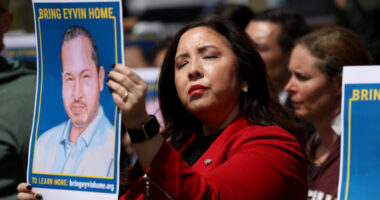
LOS ANGELES—The International Alliance of Theatrical Stage Employees, a union representing more than 150,000 behind-the-scenes workers in entertainment, took a step toward calling a strike that could shut down production across Hollywood.
In a vote on Monday, members gave their leadership the ultimate authority to call a strike should ongoing negotiations over working conditions and pay with studios and the streaming services break down. The vote was taken across 36 local unions representing some 60,000 workers. With nearly 90% of that group casting ballots, 98% voted in favor of strike authorization.
A strike would cripple Hollywood as it is emerging from the Covid-19 pandemic slowdown and bring production to a near-standstill, throwing studio plans for future movies and shows into turmoil and immediately costing millions of dollars. This is the first time in IATSE’s 128-year history that a nationwide strike has been authorized.
The overwhelming support for strike authorization punctuates a monthslong showdown between IATSE and the Alliance of Motion Picture and Television Producers, a consortium of studios and streaming services that includes Netflix Inc. and Apple Inc. IATSE members have called on the employers in this next three-year agreement to guarantee better working conditions—including rest and less-strenuous hours—and better pay on streaming productions.
“The members have spoken loud and clear,” said IATSE International President Matthew Loeb. “This vote is about the quality of life as well as the health and safety of those who work in the film and television industry. Our people have basic human needs like time for meal breaks, adequate sleep, and a weekend. For those at the bottom of the pay scale, they deserve nothing less than a living wage.”
As in many industries still coming back from their pandemic crisis mode, from airlines to distribution centers, Hollywood has seen workers demand changes to the status quo and better work-life balance as they return to work. For IATSE, that has resulted in a mobilization effort that has called attention to the less glamorous aspects of working in entertainment. For months, the cinematographers, prop artists and other crew workers employed across Hollywood have seethed over what they describe as unfair and unsafe working conditions, in part brought on by a streaming-era surge in production.
Social media fueled the effort as negotiations between IATSE and the studios dragged on over the past several months. On Instagram, members recounted long hours, low pay and days with little food or sleep. In Los Angeles in recent days, car windows have been emblazoned with the IATSE insignia, and drivers urging passersby to honk in support of a strike.
An agreement must soon be reached between IATSE and the AMPTP, or there is risk of a strike.
“The AMPTP remains committed to reaching an agreement that will keep the industry working,” a spokesman for AMPTP said. “We deeply value our IATSE crew members and are committed to working with them to avoid shutting down the industry at such a pivotal time, particularly since the industry is still recovering from the economic fallout from the COVID-19 pandemic.”
The possibility of a strike comes at a particularly vulnerable time for the studios and streaming services. Production has ramped back up after Covid-19 shut down or delayed dozens of movies and TV shows, and streaming services are loath to cut back on offerings and risk losing subscribers.
Looming large in Hollywood’s collective memory is the 2007 strike of the Writers Guild of America, which lasted more than three months and included picket lines that formed outside studio gates. That dispute grew out of the guild’s frustration with compensation tied to online distribution. The IATSE negotiations with AMPTP contend with a sequel to such concerns—how its members are paid by streaming services fueling the surge in production.
A petition circulating among IATSE members notes that members on streaming projects “get paid less, even on productions with budgets that rival or exceed those of traditionally released blockbusters.”
Mr. Loeb at IATSE said he told the studios of the authorization vote on Monday morning, though it is unclear when the two sides will resume negotiations.
Write to Erich Schwartzel at [email protected]
Copyright ©2021 Dow Jones & Company, Inc. All Rights Reserved. 87990cbe856818d5eddac44c7b1cdeb8
Appeared in the October 5, 2021, print edition as ‘Hollywood Union Approves Strike.’









